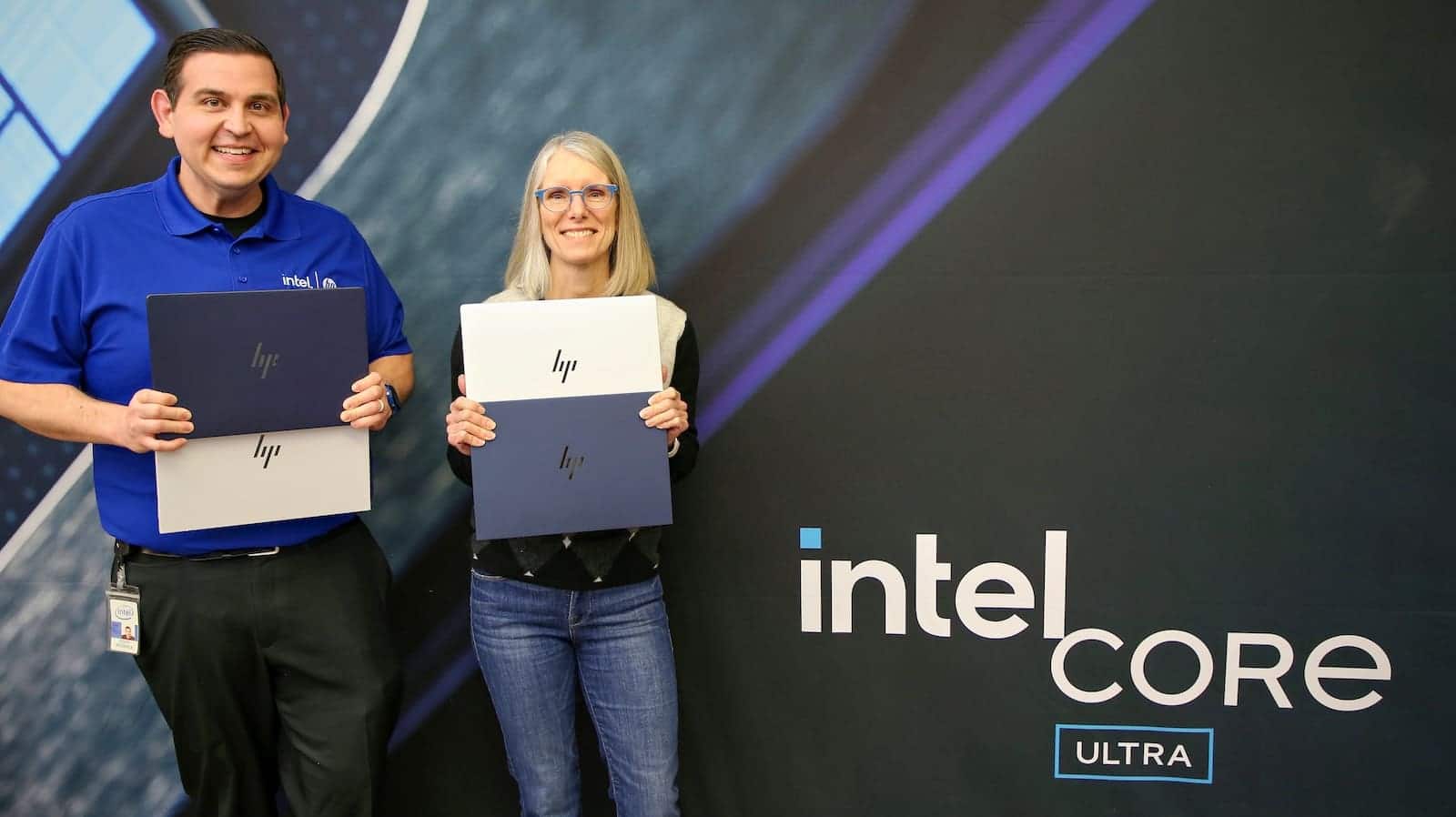The new HP EliteBook X and EliteBook Ultra, equipped with Intel Core Ultra processors, set a milestone in productivity and performance thanks to integrated artificial intelligence.
The era of AI PCs is now a tangible reality. HP, in collaboration with Intel, has launched a new generation of personal computers designed to harness the full potential of artificial intelligence. This new category of devices—represented by models like the EliteBook X and EliteBook Ultra—is not just a hardware upgrade; it has been meticulously co-designed and optimized to execute AI workloads efficiently, privately, and without relying on the cloud.
Copilot+ in Windows and total collaboration
HP’s new AI PCs not only integrate the new Intel® Core™ Ultra 200V chips but have also been fine-tuned jointly by the engineering teams at HP and Intel to ensure optimal performance in CPU, GPU, and especially the new neural processing unit (NPU). This co-engineering has allowed for the validation of real-use cases and the selection of applications that have an immediate impact on productivity and user experience.
According to Carla Rodríguez, Vice President of Client Software Ecosystem at Intel, “the collaborative effort has enabled us to deliver faster, more efficient AI experiences tailored to the real-world use cases demanded by enterprise users.”
AI you can feel: frictionless productivity and creativity
The goal was clear: to ensure that AI applications work better from the very start. To achieve this, Intel dedicated over 500 hours of testing across eight different HP laptop models, identifying the most relevant applications for professionals and optimizing them for the new hardware. The result has been a software catalog that already shows remarkable performance improvements:
- Power BI: up to 45% faster in data analysis and report generation.
- Tableau: 48% improvement in running smart analysis functions.
- Adobe Lightroom: up to 32% faster in photo editing tasks.
- Canvid: video recording and editing application with AI, with effects generated 223% faster.
- Writeup: writing assistant based on local language models, with a 165% improvement in processing speed compared to previous generations.
These improvements are not just lab figures. They are real benefits that users can experience by drastically reducing wait times and optimizing complex tasks, all while maintaining privacy by keeping processing on the device.
Privacy without sacrificing power
One of the major promises of this new generation is the ability to run language models and other AI tools directly on the device, without relying on remote servers. This represents a significant advancement in terms of privacy and data protection, especially in business and educational contexts where secure information handling is paramount.
Applications like Writeup demonstrate how AI can be integrated locally to provide functions such as translation, assisted writing, or summary generation without sending data to the cloud.
Implications for education, business, and creativity
From corporate environments to educational institutions, these new devices offer significant advantages. For teachers and students, having access to writing assistants, data analysis tools, or software enhanced by AI opens up new opportunities for personalized learning and time management.
In the business realm, the benefits translate to increased productivity, reduced software costs, and enhanced data security. According to Cory McElroy, Vice President at HP, “this collaboration with Intel has been key in delivering tangible value through our new AI PCs, and the results are evident from the very first use.”
HP as a leader in the AI PC era
Specialized media such as Forbes and WindowsCentral have highlighted HP’s pioneering role in this transformation. “If you want to see what an AI PC can really do today, HP is the company to watch,” concludes Zachary Broddy, an analyst at WindowsCentral.
With these launches, HP is establishing itself as a leader in the transition to truly intelligent computers that can adapt to users, execute AI efficiently, and make a difference in both daily experiences and final outcomes.
The collaboration between Intel and HP demonstrates that the future of personal computers is no longer defined solely by hardware power but by their ability to offer smart, secure, and personalized experiences. In the new era of AI PCs, performance is measured by what the device can anticipate and do for the user. And HP, alongside Intel, has taken a firm step forward.

